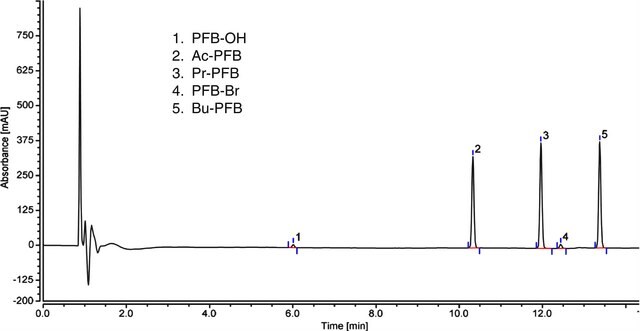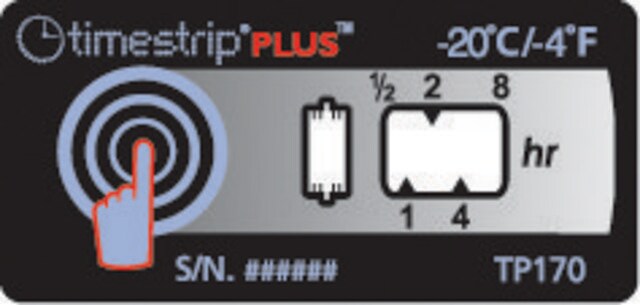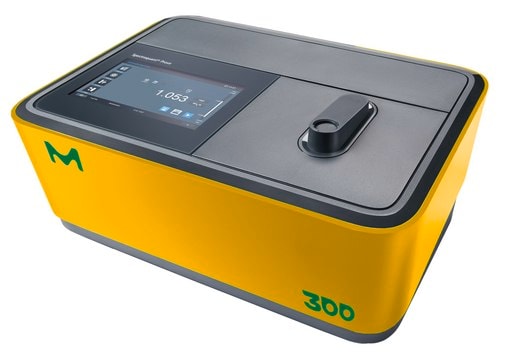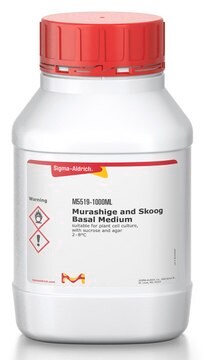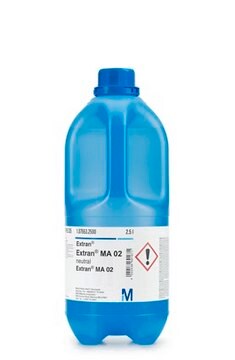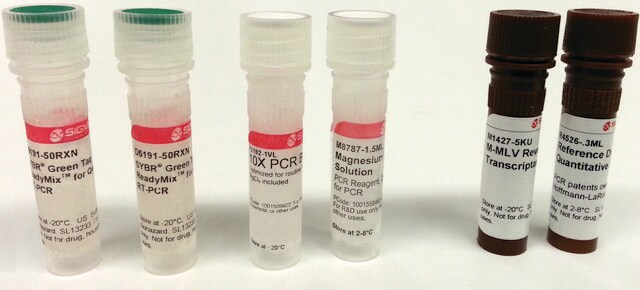FSUPMMRO
Roche
FastStart Universal Probe Master (Rox)
sufficient for 250 reactions, sufficient for 1250 reactions, sufficient for 5000 reactions, suitable for qPCR, suitable for RT-qPCR
About This Item
Recommended Products
usage
sufficient for 1250 reactions
sufficient for 250 reactions
sufficient for 5000 reactions
Quality Level
feature
dNTPs included: no
hotstart
manufacturer/tradename
Roche
packaging
pkg of 1250 x 20 μL reactions (04913957001)
pkg of 250 x 20 μL reactions (04913949001)
pkg of 5000 x 20 μL reactions (04914058001)
technique(s)
RT-qPCR: suitable
qPCR: suitable
input
purified DNA
detection method
probe-based
Related Categories
General description
FastStart™ Universal Probe Master (Rox) includes a novel reference dye that enables its use on all real-time PCR instruments requiring normalization with ROX, without modification or adjustments to the specific instrument or protocol. This ready-to-use, 2x concentrated master mix contains all reagents (except primers, probe, and template) needed for running quantitative, real-time DNA-detection assays, including qPCR and two-step qRT-PCR, in the hydrolysis probe detection format. FastStart™ Universal Probe Master (Rox) generates excellent results on instruments such as the Applied Biosystems 7900 HT Fast Real-Time PCR System or the Applied Biosystems 7500 Real-Time PCR System. This product is not intended for use with the LightCycler® Instruments.
Application
- in TaqMan® quantitative real-time polymerase chain reaction (qRT-PCR) reactions for the quantification of endogenous miRNAs, such as MIR376B, MIR376A and MIR181A
- in reverse transcriptase (RT-PCR) to study tumor necrosis factor (TNF) expression in whole synovial tissue of undifferentiated peripheral inflammatory arthritis (UPIA) patients
- for the amplification and detection of any DNA or cDNA target, including those that are GC- or AT-rich by quantitativePCR
Features and Benefits
- Increase qPCR sensitivity and specificity.
- Use the master mix with any probe-based assay.
- Amplify and detect a broad range of DNA or cDNA targets.
- Visualize amplification products on agarose gels.
- Use robotic pipetting stations to set up qPCR reactions.
- Prevent false positives resulting from carryover contamination.
Components
Quality
Other Notes
Legal Information
Storage Class
12 - Non Combustible Liquids
wgk_germany
WGK 1
flash_point_f
does not flash
flash_point_c
does not flash
Certificates of Analysis (COA)
Search for Certificates of Analysis (COA) by entering the products Lot/Batch Number. Lot and Batch Numbers can be found on a product’s label following the words ‘Lot’ or ‘Batch’.
Already Own This Product?
Find documentation for the products that you have recently purchased in the Document Library.
Customers Also Viewed
Articles
The purpose of Hot Start PCR is to inhibit the PCR reaction in order to reduce nonspecific amplification, prevent the formation of primer dimers, and increase product yields.
The purpose of Hot Start PCR is to inhibit the PCR reaction in order to reduce nonspecific amplification, prevent the formation of primer dimers, and increase product yields.
Related Content
Polymerase chain reaction (PCR) is a technique for amplifying nucleic acid molecules and is commonly used in many applications, including RT-PCR, hot start PCR, end point PCR and more.
RT-qPCR, or quantitative reverse transcription PCR, combines the effects of reverse transcription and quantitative PCR or real-time PCR to amplify and detect specific targets. RT-qPCR has a variety of applications including quantifying gene expression levels, validating RNA interference (RNAi), and detecting pathogens such as viruses.
Our team of scientists has experience in all areas of research including Life Science, Material Science, Chemical Synthesis, Chromatography, Analytical and many others.
Contact Technical Service
